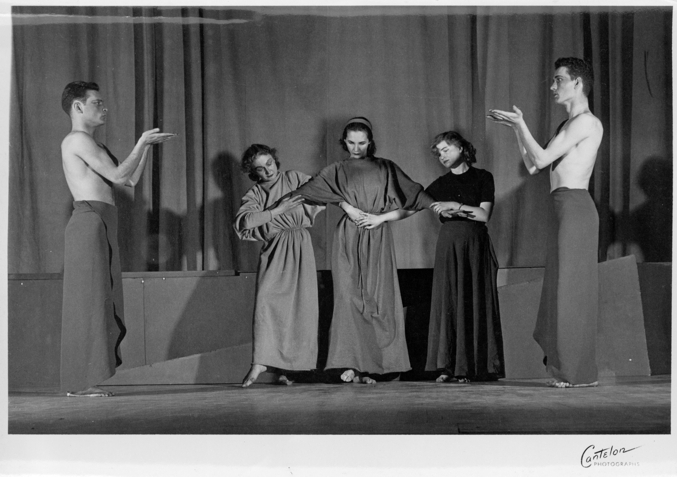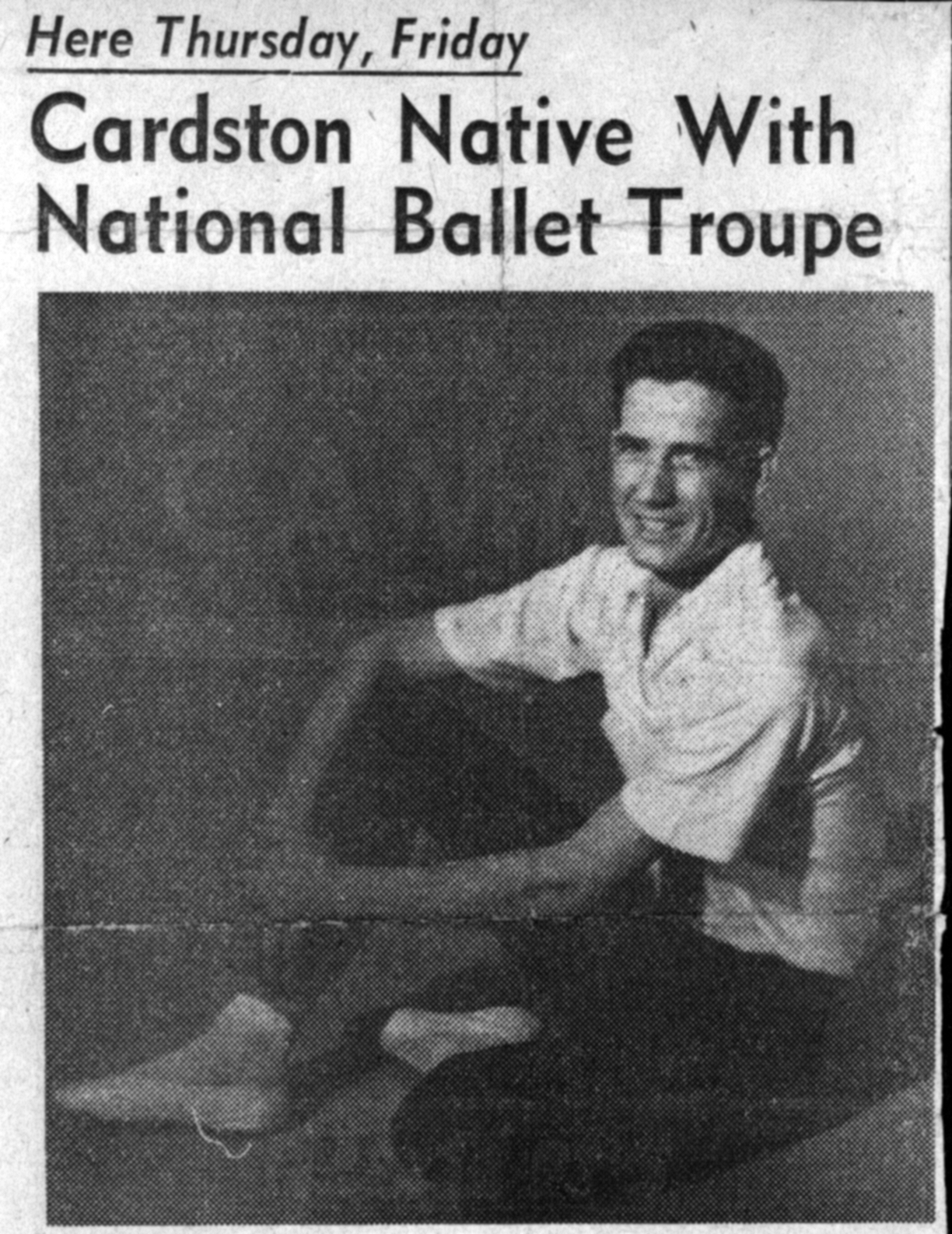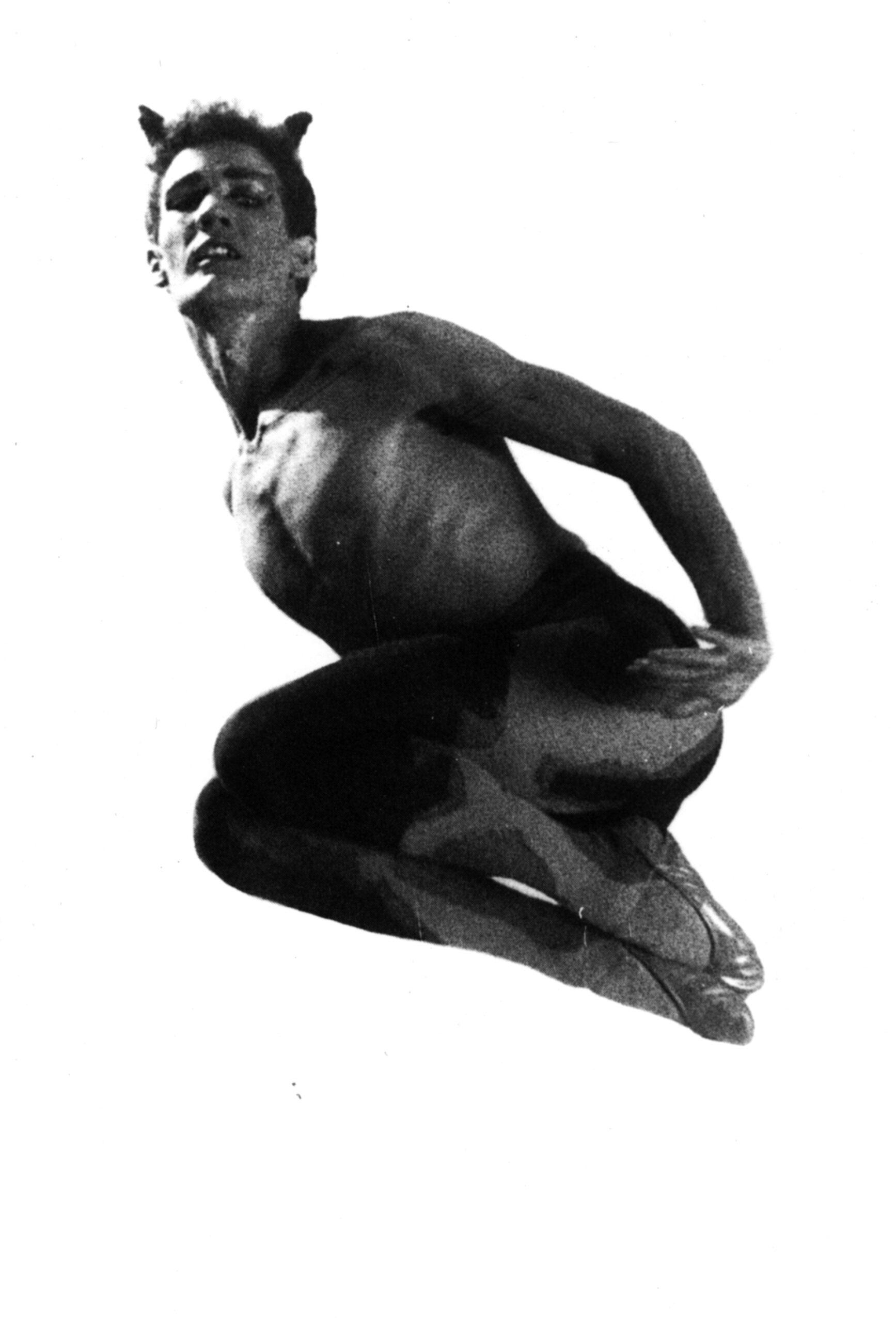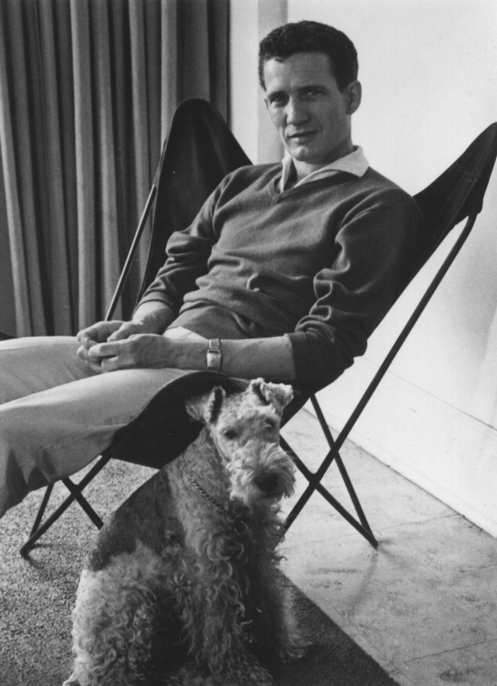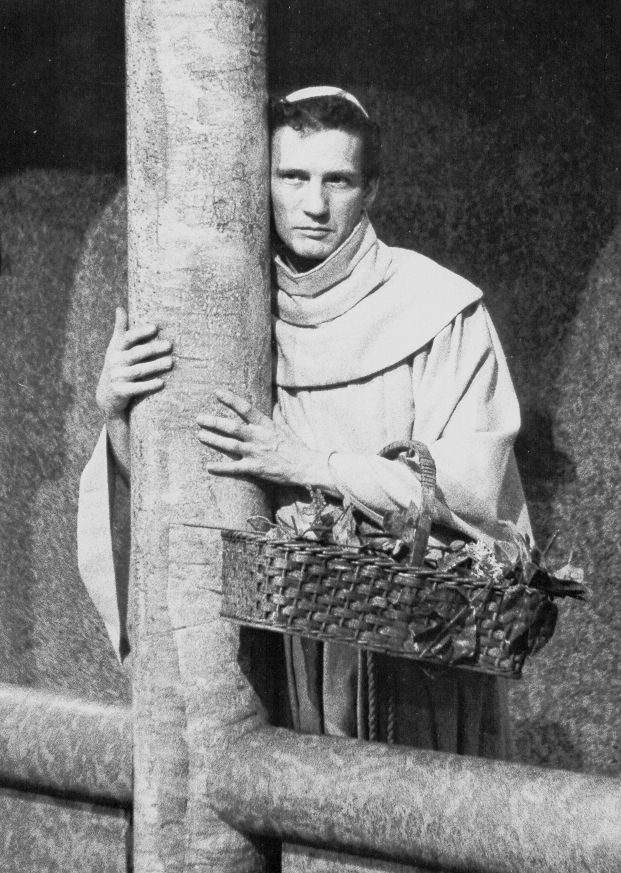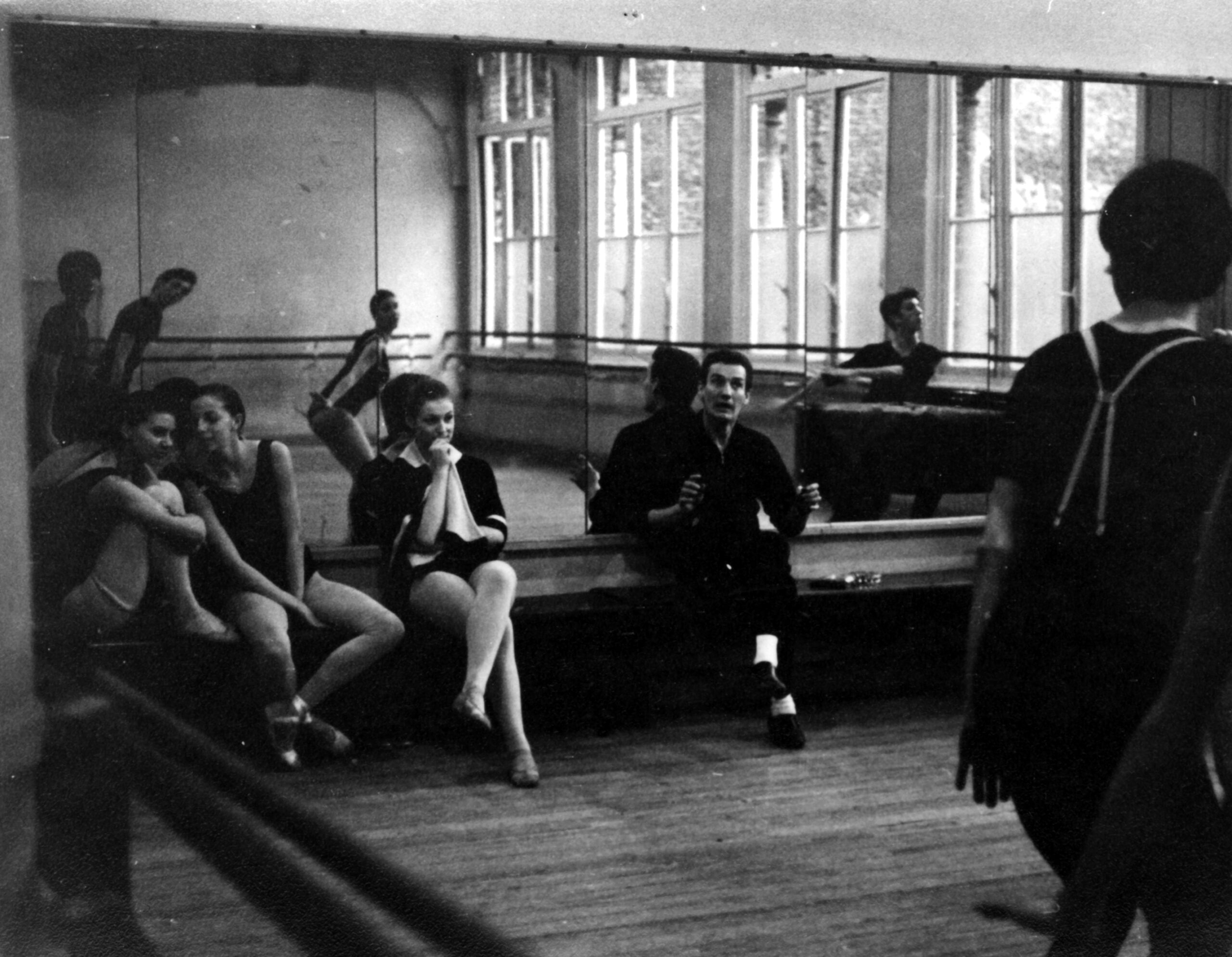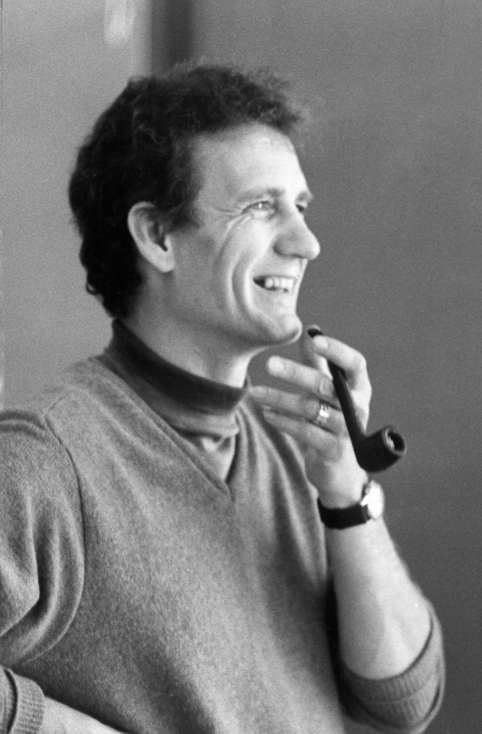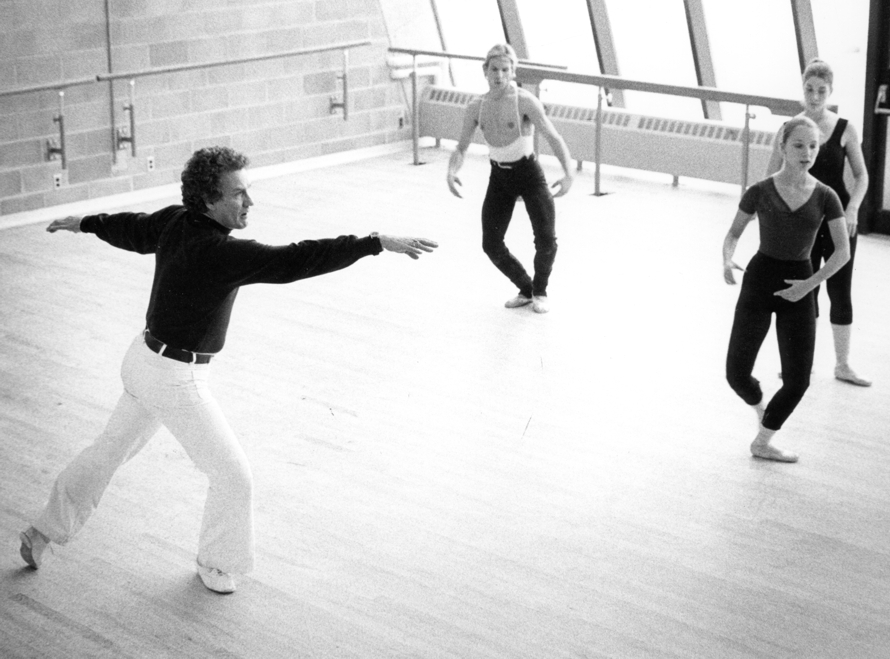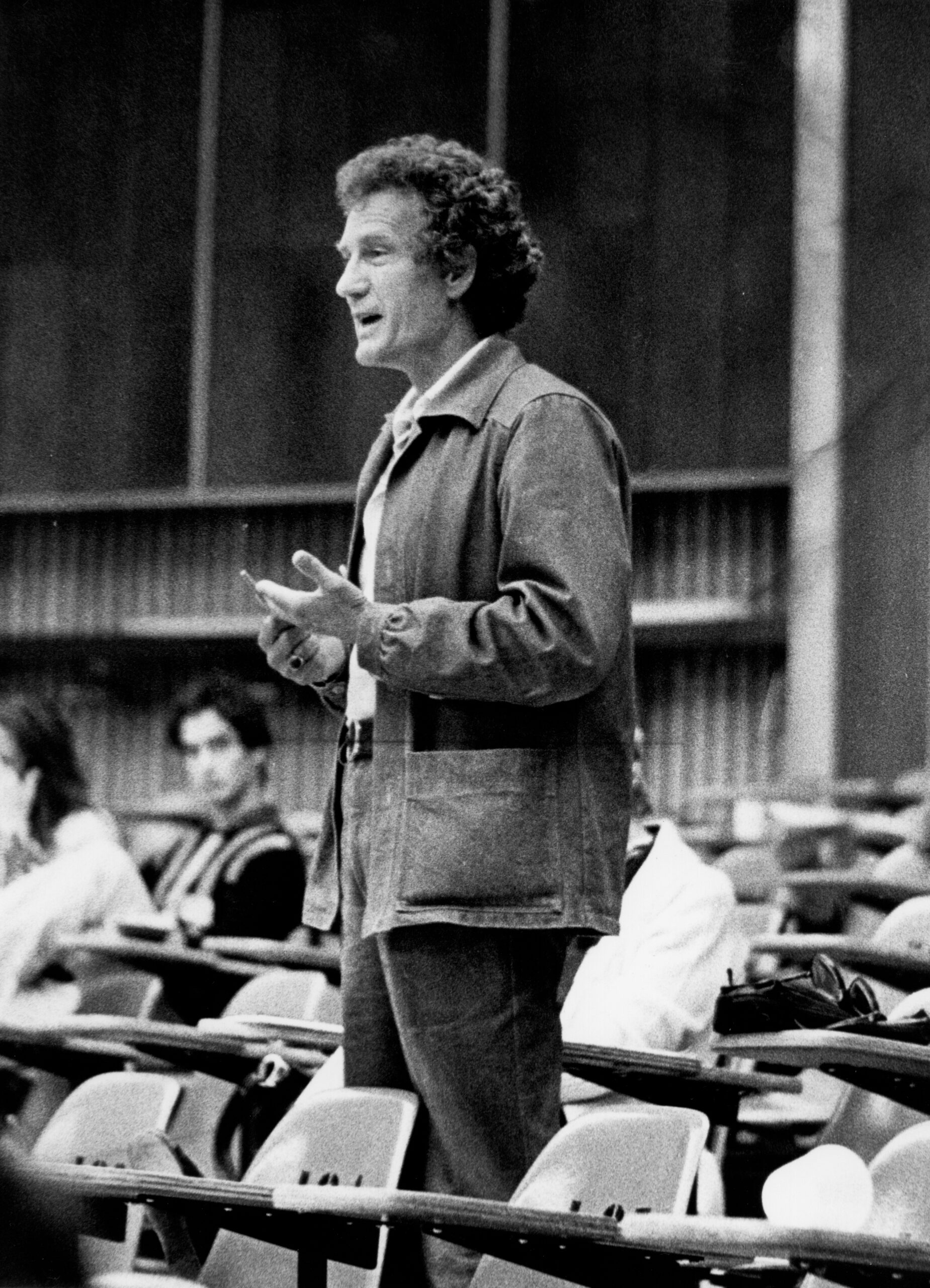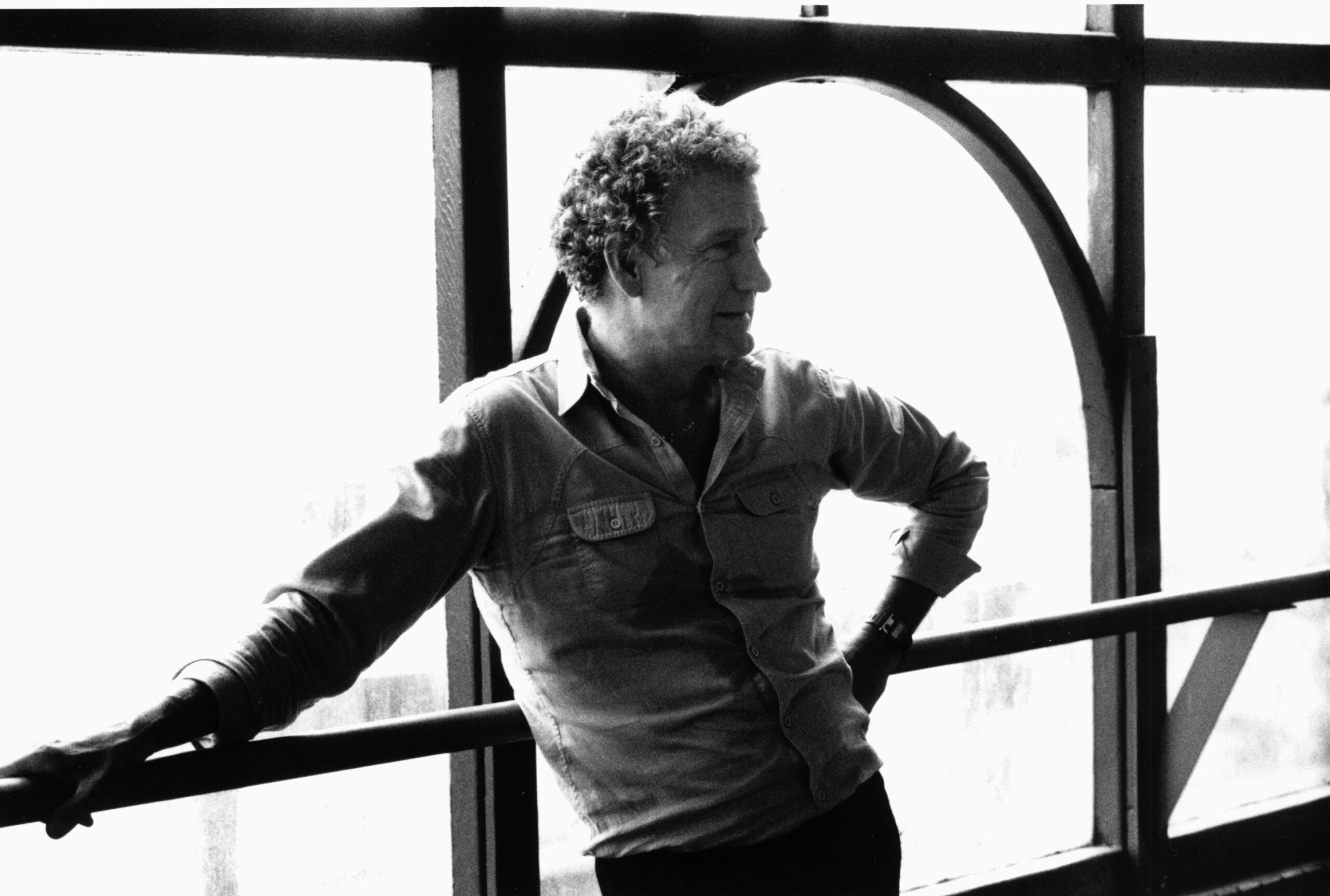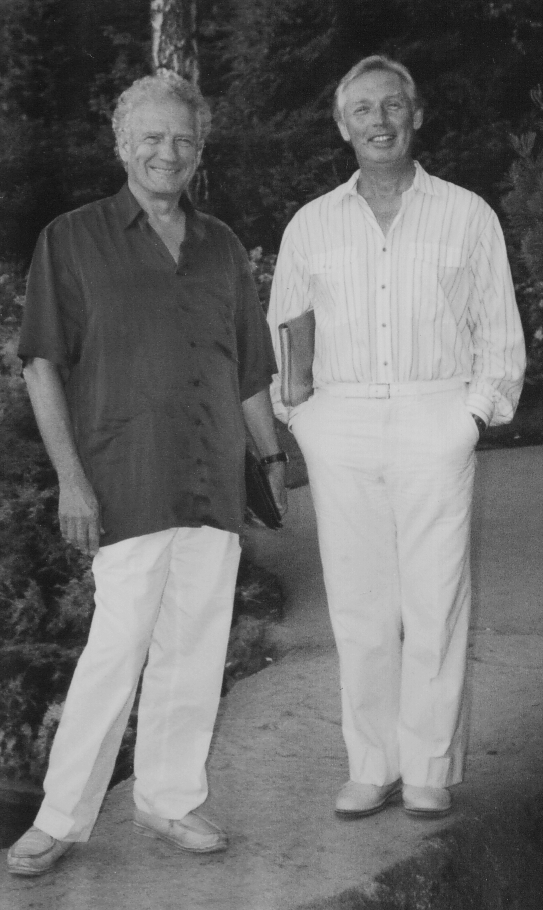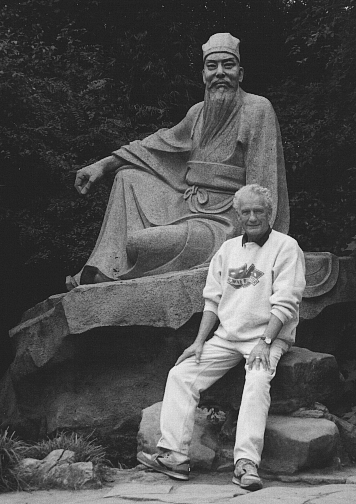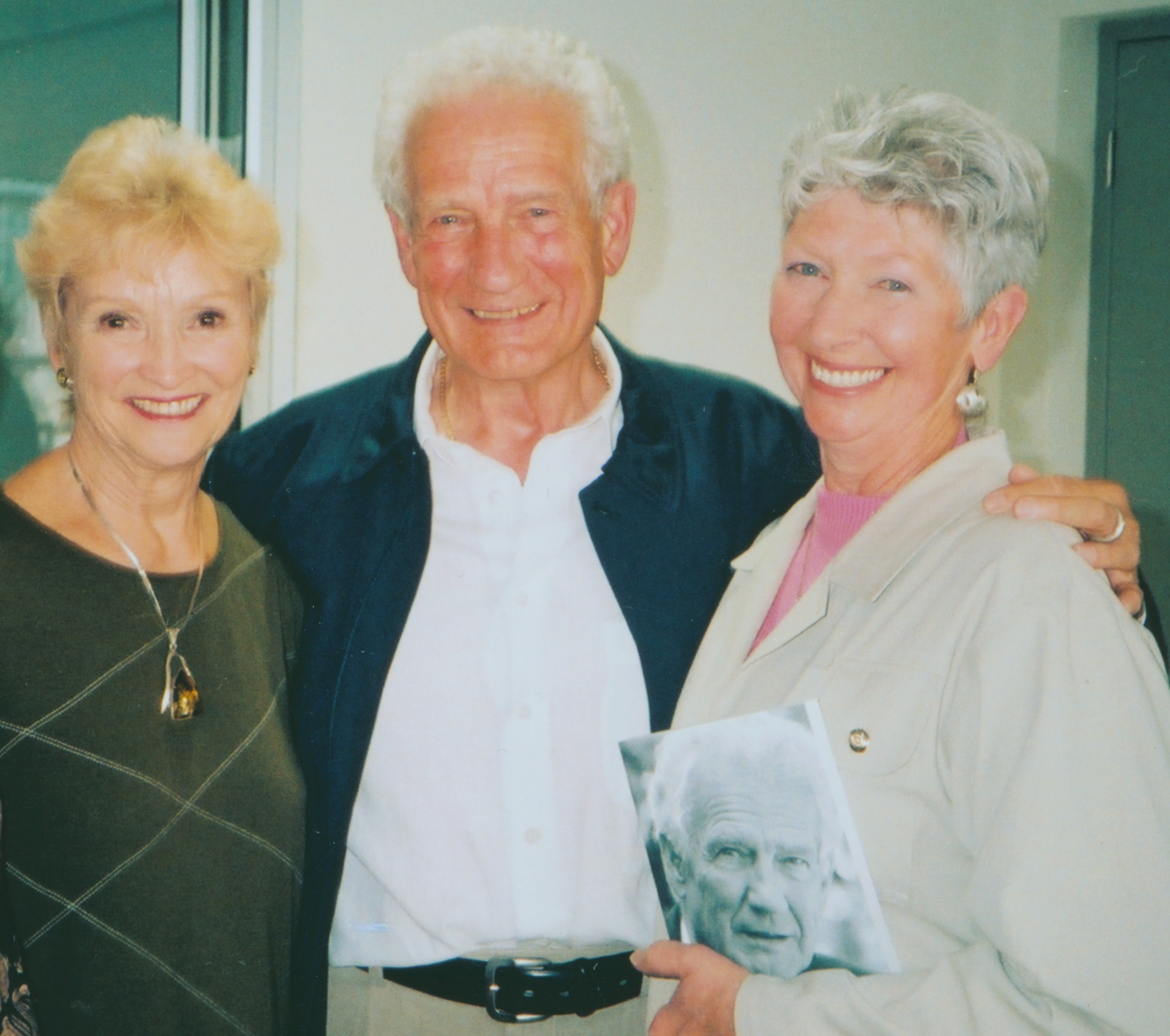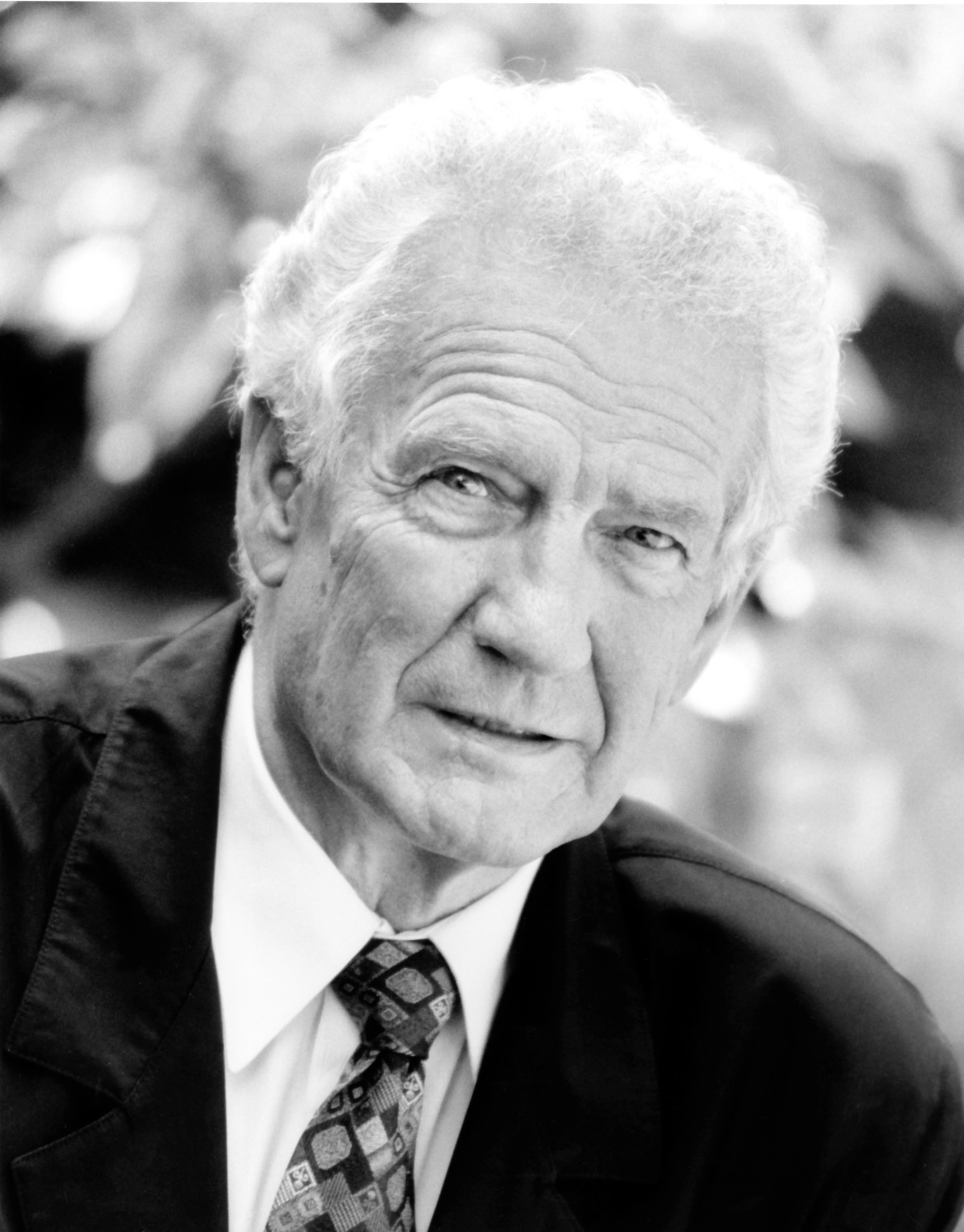GRANT STRATE, C.M., F.R.S.C.
December 7, 1927 – February 9, 2015
By CAROL ANDERSON
May I often teach classes in the Grant Strate Studio in the Department of Dance at York University, where Grant gave me my first university teaching job in 1974. I think of him, coming into view with his pipe and his little dog Fella, who trotted about with him as by executive privilege. In the early years of the program Grant designed and started, he was peripatetic, everywhere visible as a choreographer, teacher and strategically savvy administrator. His enthusiasm for the potential of the program was infectious, and he had a quality which is exceedingly wonderful in a teacher – he liked his students! Grant challenged us and provided opportunities, enjoyed watching people bloom, and if we crashed or failed, offered level-headed counsel. In those early years he promoted a concept of “the wandering scholar”, believing in the potential of Canada’s first university dance program to seed and encourage wide-ranging activity. Grant understood that during their careers dance artists could and would have to call on many facets of intelligence, and pursue ideas and causes mightily, with curiosity, knowledge and aplomb. His formidable artistic and administrative energies made him an inspirational leader and mentor. Then and since, many York graduates, fired by the sense of potential Grant cultivated, have been active as dancers, choreographers, artistic directors, teachers, writers, high-level cultural administrators, leaders in the Canadian dance scene. This experience of him at York is perhaps a microcosm of Grant Strate’s long span of contributions to the evolution of dance in Canada from the 1950s onward.
Born in Cardston, Alberta, on December 7, 1927, Grant Elroy Strate grew up in a Mormon family. He attended the University of Alberta in Edmonton, pursuing a law degree. While there he was active in campus theatre, and also met and worked with Laine Metz, a proponent of Mary Wigman’s “German” dance. When Celia Franca swept through on a recruiting tour for the yet-to-be National Ballet of Canada, Grant showed her two of his choreographies. She offered him a position with the fledgling ballet, and he put aside his anticipated legal future to become a charter member of the Ballet. Without an early foundation in ballet training, he trained diligently, honing his ferocious work ethic, performed mostly character roles, and choreographed. Through the 1950s and 1960s Grant created a series of ballets for the young company, investigating his fresh view of ballet vocabulary, his interest in abstract and narrative arcs, and his fascination with contemporary music in works including The House of Atreus (1964), Ballad (1958), and The Fisherman and his Soul (1956).
Grant became Franca’s assistant, travelling internationally and becoming active in the acquisition of works for the ballet, including John Cranko’s Romeo and Juliet. One of Grant’s prime roles was as Friar Laurence in Romeo and Juliet – a role that involved alchemy, agency, a glimmer of mystery – and suited him perfectly …
Grant left the National Ballet in 1971 to start the dance program at York University. From its inception, he was interested in the notion of the university as a natural ground for creative research, and was the architect of the four National Choreographic Seminars. These took place in 1978 at York, in 1980 at the Banff Centre for the Arts, and in 1985 and 1991 at Simon Fraser University. Gathering choreographers, dancers, musicians, composers in intensive creative laboratories, under the guidance of internationally known choreographic mentors such as Robert Cohan and Phyllis Lamhut, these seminal events galvanized choreographic realizations, fostered ongoing artistic collaborations and significantly boosted the development of choreography in Canada.
In 1980, Grant became the director of Simon Fraser University’s (SFU) Centre for the Arts. There, on top of Burnaby Mountain, he nurtured the sometimes fractious creativity of music, visual art, theatre and dance. In 1989, he became director of the Simon Fraser Summer Institute of the Contemporary Arts, where he remained until retiring in 1994.
Grant always sustained a lively presence in the organizational side of dance. Founding chair of Dance in Canada in 1973, he maintained that role for three years and was a board member until 1980. I recall him, with gratitude, as the long-serving board chair for Dancemakers. In early years, when it was a naïve collective of idealistic dancers, his authority and skill lent the fledgling company credibility. His guidance was invaluable, and dog Fella never missed a meeting. Grant served from 1986 to 1992 as chair of the Vancouver Dance Centre, negotiating complexities of building the Centre’s downtown location. Active and expert in advisory roles, Grant served as a member of the Dance Advisory Committee, the Assessment Review Committee and the Peer Assessment Committee of the Canada Council for the Arts, and sat on the B.C. Arts Board.
In 1999, Grant was elected President of the World Dance Alliance – Americas. In support of the organization’s aims and members, he travelled widely, particularly in China and South-East Asia, which he visited four times, taking up invitations to teach and choreograph. Dance Collection Danse published his book, China Dance Journal, in 1997. He also published his Memoir with DCD in 2002.
Among his honorifics, in 1993 Grant became the second recipient of the prestigious Chalmers Award for Creativity in Dance. In 1995 he was inducted into the Order of Canada, and in 1996 received the Governor General’s Performing Arts Award. Simon Fraser University awarded him an honorary doctorate in 1999. Also in 1999, he was co-recipient, with Marc Boivin, of the Canada Council’s Jacqueline Lemieux Award.
Grant was consistently creative – creativity and being in the studio fuelled him – he taught ballet classes into his eighties in Vancouver. He created scores of choreographies across Canada, for companies including Dancemakers, Entre-Six, Regina Modern Dance Works, the Off-Centre Dance Company at Simon Fraser, and Vancouver’s Mountain Dance Theatre; he taught in New York, China, across Canada; and created more than fifty works by commission, including ballets for the Royal Swedish Ballet, the Royal Flemish Ballet, and Belgium’s Ballet van Vlanderen.
Grant was always in the business of transformation, through creation and education, with far-reaching and enduring effects. Feisty, judicious-looking as a Roman senator, eyes glittering with his unique wisdom, Grant Strate holds a very special place in the Canadian dance world. His work and his memory will continue to inspire all who had the privilege of knowing him.
PERSONNEL
Miriam Adams, C.M.
Co-founder/Advisor
Amy Bowring
Executive and Curatorial Director
Jay Rankin
Administrative Director
Vickie Fagan
Director of Development and Producer/Hall of Fame
Elisabeth Kelly
Archives and Programming Coordinator
Michael Ripley
Marketing & Sales Coordinator
CONTACT
1303 – 2 Carlton St.
Toronto, ON
M5B 1J3
Canada
Phone: 416-365-3233
Fax: 416-365-3169
info [AT] dcd.ca
HOURS
Mon. – Fri. 10 a.m. – 5 p.m.
Appointment Required
Contact our team by email or call one of the numbers above









